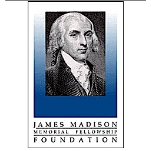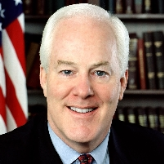An independent agency of the Executive Branch of the federal government, the James Madison Memorial Fellowship Foundation provides educational funding of up to $24,000 each for qualified students who are U.S. citizens or U.S. Nationals committed to teaching American history, American government, or social studies full time in grades 7 to 12.
The James Madison Memorial Fellowship Foundation was first proposed by the Education Committee of the Commission on the Bicentennial of the United States Constitution, which was chaired by Sen. Edward M. Kennedy (D-Massachusetts). The professed goal of the Foundation—in honor of President James Madison—was, and is, to encourage graduate study of the United States Constitution, its roots, formation, principles, and development, with the objective of strengthening education about the Constitution to future secondary school level students, helping create a better understanding and appreciation of American government, and the value of participating in it.
In 1986, Kennedy and several of his colleagues spearheaded the passing of the law—which was then signed by President Ronald Reagan—that created the Foundation. A 13-member Board of Trustees, each member appointed by the U.S. President for a six-year term, governs the Foundation. Reagan appointed the first Board members in 1988, and Kennedy was elected as its first chairman. The Board named retired Commandant of the U.S. Coast Guard, Admiral Paul A. Yost, Jr., as the Foundation’s first president. The first 48 Madison Fellows were awarded in 1992. Sen. John Cornyn (R-Texas) took over as chairman after Kennedy died in 2009.
Each year, the James Madison Memorial Fellowship Foundation offers a program open to U.S. citizens and U.S. Nationals who are planning to become teachers of American history, government, or social studies at the secondary school level. The Foundation awards qualified selected students up to $24,000, pro-rated over the period of study, to cover the cost of tuition, other required fees, books, and room and board, but cannot exceed $12,000 per academic year. Usually Fellows receive less than these maximum amounts. There are two types of fellowships. Junior Fellowships are awarded to college seniors and graduates who haven’t yet taught, but intend to in the required field. They must plan to receive a BA no later than August 31 of the year of application.
Senior Fellowships are awarded to current teachers who participate in the program on a part-time basis and must be able to finish their graduate studies within five calendar years. All candidates are expected to complete a Master’s Degree in one of the following: Master of Arts (MA) in American History or in Political Science (also referred to as government and politics, or government); Master of Arts in Teaching (MAT), concentrating on either American Constitutional History or American Government, in a History department, or Political Institutions and Political Theory, in a Political Science department; Master of Education (MEd), or the Master of Arts or Master of Science in Education, with a concentration in American History or American Government, Political Institutions, and Political Theory.
Fellows may attend any institution of higher education in the United States with an accredited graduate program that offers courses of study that emphasize the origins and development of the Constitution, the evolution of political theory and constitutional law, and the effects of the Constitution on society and culture in the United States, or other such topics directly related to the Constitution. A Fellow must take at least 12 semester credits or 18 quarter credits of constitutional study and must also attend the four-week Summer Institute on the Constitution at Georgetown University. In addition, the student’s college must accept credits from the program toward a degree. The academic focus of the Institute is a graduate course entitled, “The Foundations of American Constitutionalism,” which is a study of the principles, framing, ratification, and implementation of constitutional government in the United States, taught by constitutional scholars. Class attendance at this Institute is mandatory and Fellows are required to live on campus. Six credit hours are awarded by Georgetown University for successful completion of the Institute, which includes occasional trips to sites in and around Washington that are associated with the Constitution.
At least one student is chosen from each state (unless there are no applicants that year from a state), the District of Columbia, the Commonwealth of Puerto Rico, and, considered as a single entity, Guam, the U.S. Virgin Islands, American Samoa, and the Commonwealth of the Northern Mariana Islands. If funds permit, more than one fellowship may be awarded in jurisdictions with larger populations. To be considered, students are chosen on their academic achievements and also must send in with the application an essay explaining the importance of the study of the Constitution to his or her contributions to public service and career aspirations as well as to the citizenship as a whole. Those selected then enter into an agreement with the Foundation that within a five-year period after completing the education for which the Fellowship was awarded, if they have not taught students in a secondary school on a full-time basis for one year for each year of assistance, they must repay the money plus 6% interest, unless the Fellow is still pursuing a full-time course of study related to the field of teaching at an eligible institution, or serving as a member of the Armed Services, for a period not to exceed three years, or taking care of a disabled spouse, for a period not to exceed three years, or unable to find full-time employment for a period not to exceed 12 months.
The Constitution of the United States
From the Web Site of the James Madison Memorial Fellowship Foundation
Other than the funds made available for the Foundation’s annual grants, U.S. Code chapter 57—via Section 4511, Expenditures and Audit—authorizes the Secretary of the Treasury to “pay to the Foundation from the interest and earnings of the fund such sums as the Board determines are necessary and appropriate to enable the Foundation to carry out the provisions” of its duties. Furthermore, Code Section 4513 authorizes the Board to procure the services of “experts and consultants,” and to set pay rates for Foundation staff “not in excess of the maximum rate for grade GS-15 of the General Schedule.”
- Table of Contents
- Overview
- History
- What it Does
- Where Does the Money Go
- Controversies
- Suggested Reforms
- Comments
- Leave a comment


Replacing Edward “Ted” Kennedy as chairman of the board of trustees for the James Madison Memorial Fellowship Foundation is U.S. Senator John Cornyn III (R-TX), one of the most conservative members of the Senate. The Foundation was founded by Congress in 1986 to encourage the teaching of the U.S. Constitution in secondary schools.

- Latest News
- D.C. Public Schools will Teach all Second-Graders to Ride a Bike
- New Rule in Germany Limits Sales of Sex-Themed E-Books to 10pm to 6am
- What Happened to the 6-Year-Old Tibetan Boy the Chinese Government Kidnapped 20 Years Ago?
- U.S. Ambassador to Turkey Photoshops his Hair Color to Mock Turkish Mayor
- Mystery Artist Calls Attention to Unfixed Potholes by Drawing Penises around Them
An independent agency of the Executive Branch of the federal government, the James Madison Memorial Fellowship Foundation provides educational funding of up to $24,000 each for qualified students who are U.S. citizens or U.S. Nationals committed to teaching American history, American government, or social studies full time in grades 7 to 12.
The James Madison Memorial Fellowship Foundation was first proposed by the Education Committee of the Commission on the Bicentennial of the United States Constitution, which was chaired by Sen. Edward M. Kennedy (D-Massachusetts). The professed goal of the Foundation—in honor of President James Madison—was, and is, to encourage graduate study of the United States Constitution, its roots, formation, principles, and development, with the objective of strengthening education about the Constitution to future secondary school level students, helping create a better understanding and appreciation of American government, and the value of participating in it.
In 1986, Kennedy and several of his colleagues spearheaded the passing of the law—which was then signed by President Ronald Reagan—that created the Foundation. A 13-member Board of Trustees, each member appointed by the U.S. President for a six-year term, governs the Foundation. Reagan appointed the first Board members in 1988, and Kennedy was elected as its first chairman. The Board named retired Commandant of the U.S. Coast Guard, Admiral Paul A. Yost, Jr., as the Foundation’s first president. The first 48 Madison Fellows were awarded in 1992. Sen. John Cornyn (R-Texas) took over as chairman after Kennedy died in 2009.
Each year, the James Madison Memorial Fellowship Foundation offers a program open to U.S. citizens and U.S. Nationals who are planning to become teachers of American history, government, or social studies at the secondary school level. The Foundation awards qualified selected students up to $24,000, pro-rated over the period of study, to cover the cost of tuition, other required fees, books, and room and board, but cannot exceed $12,000 per academic year. Usually Fellows receive less than these maximum amounts. There are two types of fellowships. Junior Fellowships are awarded to college seniors and graduates who haven’t yet taught, but intend to in the required field. They must plan to receive a BA no later than August 31 of the year of application.
Senior Fellowships are awarded to current teachers who participate in the program on a part-time basis and must be able to finish their graduate studies within five calendar years. All candidates are expected to complete a Master’s Degree in one of the following: Master of Arts (MA) in American History or in Political Science (also referred to as government and politics, or government); Master of Arts in Teaching (MAT), concentrating on either American Constitutional History or American Government, in a History department, or Political Institutions and Political Theory, in a Political Science department; Master of Education (MEd), or the Master of Arts or Master of Science in Education, with a concentration in American History or American Government, Political Institutions, and Political Theory.
Fellows may attend any institution of higher education in the United States with an accredited graduate program that offers courses of study that emphasize the origins and development of the Constitution, the evolution of political theory and constitutional law, and the effects of the Constitution on society and culture in the United States, or other such topics directly related to the Constitution. A Fellow must take at least 12 semester credits or 18 quarter credits of constitutional study and must also attend the four-week Summer Institute on the Constitution at Georgetown University. In addition, the student’s college must accept credits from the program toward a degree. The academic focus of the Institute is a graduate course entitled, “The Foundations of American Constitutionalism,” which is a study of the principles, framing, ratification, and implementation of constitutional government in the United States, taught by constitutional scholars. Class attendance at this Institute is mandatory and Fellows are required to live on campus. Six credit hours are awarded by Georgetown University for successful completion of the Institute, which includes occasional trips to sites in and around Washington that are associated with the Constitution.
At least one student is chosen from each state (unless there are no applicants that year from a state), the District of Columbia, the Commonwealth of Puerto Rico, and, considered as a single entity, Guam, the U.S. Virgin Islands, American Samoa, and the Commonwealth of the Northern Mariana Islands. If funds permit, more than one fellowship may be awarded in jurisdictions with larger populations. To be considered, students are chosen on their academic achievements and also must send in with the application an essay explaining the importance of the study of the Constitution to his or her contributions to public service and career aspirations as well as to the citizenship as a whole. Those selected then enter into an agreement with the Foundation that within a five-year period after completing the education for which the Fellowship was awarded, if they have not taught students in a secondary school on a full-time basis for one year for each year of assistance, they must repay the money plus 6% interest, unless the Fellow is still pursuing a full-time course of study related to the field of teaching at an eligible institution, or serving as a member of the Armed Services, for a period not to exceed three years, or taking care of a disabled spouse, for a period not to exceed three years, or unable to find full-time employment for a period not to exceed 12 months.
The Constitution of the United States
From the Web Site of the James Madison Memorial Fellowship Foundation
Other than the funds made available for the Foundation’s annual grants, U.S. Code chapter 57—via Section 4511, Expenditures and Audit—authorizes the Secretary of the Treasury to “pay to the Foundation from the interest and earnings of the fund such sums as the Board determines are necessary and appropriate to enable the Foundation to carry out the provisions” of its duties. Furthermore, Code Section 4513 authorizes the Board to procure the services of “experts and consultants,” and to set pay rates for Foundation staff “not in excess of the maximum rate for grade GS-15 of the General Schedule.”
Comments


Replacing Edward “Ted” Kennedy as chairman of the board of trustees for the James Madison Memorial Fellowship Foundation is U.S. Senator John Cornyn III (R-TX), one of the most conservative members of the Senate. The Foundation was founded by Congress in 1986 to encourage the teaching of the U.S. Constitution in secondary schools.

- Latest News
- D.C. Public Schools will Teach all Second-Graders to Ride a Bike
- New Rule in Germany Limits Sales of Sex-Themed E-Books to 10pm to 6am
- What Happened to the 6-Year-Old Tibetan Boy the Chinese Government Kidnapped 20 Years Ago?
- U.S. Ambassador to Turkey Photoshops his Hair Color to Mock Turkish Mayor
- Mystery Artist Calls Attention to Unfixed Potholes by Drawing Penises around Them





Comments